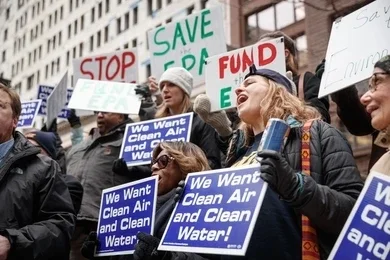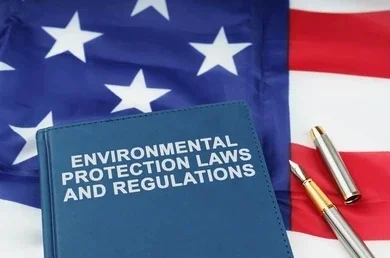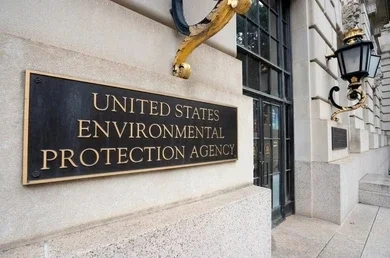The benefits of Environmental Protection Agency (EPA) is endless as a United States federal agency responsible for the protection of the environment and public health. Established in 1970 by President Richard Nixon, the EPA has been tasked with developing and enforcing regulations to safeguard the air, water, and land from pollution and other environmental hazards.
The mission of the EPA is to protect human health and the environment by developing and enforcing regulations, conducting research, and providing education and outreach. The EPA works with federal, state, and local governments, as well as businesses, organizations, and individuals to achieve its goals.
One of the most important responsibilities of the EPA is to enforce the Clean Air Act, which sets standards for the quality of the air we breathe. The EPA also regulates the release of hazardous pollutants into the air, water, and land. In addition, the agency is responsible for managing the disposal of hazardous waste, including the cleanup of Superfund sites, which are locations contaminated with hazardous substances.
The EPA also plays a key role in addressing climate change by developing policies and regulations to reduce greenhouse gas emissions. The agency works with other federal agencies, as well as international organizations, to coordinate efforts to mitigate the effects of climate change.
In addition to its regulatory responsibilities, the EPA also conducts research and provides education and outreach on a range of environmental issues. The agency’s research focuses on understanding the impacts of pollution on human health and the environment, as well as developing new technologies and approaches to reduce pollution.
The EPA also works to educate the public about environmental issues and promote sustainable practices. The agency provides resources and information to individuals, businesses, and communities on ways to reduce their environmental footprint and protect the environment.
The EPA plays a critical role in protecting the environment and public health. Through its regulatory efforts, research, and education and outreach programs, the agency works to safeguard our natural resources for future generations.
Exploring the Endless Benefits of Environmental Protection Agency

Environmental protection is a crucial aspect of modern society, as it helps to ensure that we live in a healthy and sustainable environment. The Environmental Protection Agency (EPA) is a federal agency in the United States that is responsible for regulating and enforcing environmental laws and policies. The EPA has played a vital role in protecting the environment and human health, and its benefits are endless.
One of the benefits of the EPA is that it helps to reduce pollution and protect natural resources. The EPA sets standards for air, water, and soil quality, which helps to reduce pollution and ensure that natural resources are conserved. By setting these standards, the EPA helps to protect human health and the environment, and it also helps to ensure that businesses and industries operate in a responsible and sustainable manner.
Gfl environmental greenville sc and Power environmental are two companies that have recognized the importance of environmental protection and have made efforts to implement sustainable practices in their operations. Gfl environmental greenville sc, for example, is a waste management company that provides a range of services, including recycling, composting, and landfill management. The company is committed to sustainability and works to reduce waste and conserve natural resources.
Power environmental is another company that is committed to environmental protection. The company provides environmental consulting, engineering, and remediation services to clients in various industries. Power environmental helps its clients to comply with environmental regulations and develop sustainable practices that reduce their impact on the environment.
The EPA also helps to promote environmental awareness and education. The agency provides information and resources to the public on a range of environmental topics, including air and water quality, climate change, and sustainable practices. Through its outreach and education programs, the EPA helps to raise awareness about environmental issues and encourages individuals and businesses to take action to protect the environment.
Read Also: Best Practices for Safe and Sustainable Waste Disposal Of Hospital Wastes
The EPA is a crucial agency that plays a vital role in protecting the environment and human health. Its benefits are endless and include reducing pollution, conserving natural resources, promoting sustainable practices, and raising environmental awareness. Companies like Gfl environmental greenville sc and Power environmental are excellent examples of businesses that recognize the importance of environmental protection and have made efforts to implement sustainable practices in their operations.
In addition to the benefits mentioned above, the EPA also plays a crucial role in protecting public health. The agency is responsible for regulating and monitoring toxins and chemicals that can be harmful to human health. For example, the EPA sets limits on the amount of lead, arsenic, and other contaminants that can be present in drinking water, which helps to ensure that the public has access to safe and clean drinking water.
Moreover, the EPA helps to promote innovation and technology development in the environmental sector. The agency provides funding and support for research and development of new technologies that can help to reduce pollution, conserve natural resources, and promote sustainability. By promoting innovation and technology development, the EPA helps to create new business opportunities and jobs in the environmental sector.
The EPA helps to protect vulnerable populations, such as children and low-income communities, from the harmful effects of pollution. The agency works to identify and address environmental disparities and provides resources and assistance to communities that are disproportionately affected by pollution and environmental hazards.
It is important to note that the benefits of the EPA are not limited to the United States. The agency also works with international partners to promote environmental protection and sustainability globally. Through partnerships with other countries and international organizations, the EPA helps to address global environmental challenges, such as climate change, deforestation, and ocean pollution.
The Environmental Protection Agency is a vital agency that plays a crucial role in protecting the environment, public health, and promoting sustainability. The agency’s benefits are endless and impact individuals, businesses, and communities both in the United States and globally. Companies like Gfl environmental greenville sc and Power environmental are excellent examples of businesses that recognize the importance of environmental protection and work to implement sustainable practices in their operations.
The EPA also enforces environmental laws and regulations to ensure that businesses and industries comply with environmental standards. The agency conducts inspections and investigations to identify and address violations of environmental laws and regulations, and it has the authority to issue fines and penalties for non-compliance.
This enforcement of environmental laws helps to create a level playing field for businesses and industries, ensuring that all companies operate in a responsible and sustainable manner. Environmental indicators such as air quality, water quality, and biodiversity can provide valuable information about the health of an ecosystem.
Read Also: The Ultimate Solution for Plastic Wastes Disposal
Additionally, the EPA works with states and local communities to address environmental issues that are unique to specific regions. The agency provides grants and technical assistance to help states and communities implement environmental programs and initiatives that meet their specific needs. This partnership with states and local communities helps to address environmental issues at the local level, where the impacts of pollution and environmental hazards are often most acute.
The EPA also plays a significant role in addressing climate change, which is one of the most significant environmental challenges facing the world today. The agency is responsible for implementing regulations and programs that aim to reduce greenhouse gas emissions, which contribute to climate change. Through partnerships with other countries, the EPA works to address climate change globally and promote sustainable practices that reduce the impact of human activities on the environment.
The EPA’s work helps to create a more sustainable future for generations to come. The agency’s efforts to reduce pollution, conserve natural resources, promote sustainability, and address climate change will help to ensure that future generations inherit a healthy and sustainable environment. By taking action today, the EPA is helping to create a better tomorrow for all.
The Environmental Protection Agency plays a crucial role in protecting the environment, public health, and promoting sustainability. Its work has numerous benefits, including reducing pollution, conserving natural resources, promoting sustainable practices, raising environmental awareness, protecting vulnerable populations, enforcing environmental laws, addressing climate change, and creating a more sustainable future.
Companies like Gfl environmental greenville sc and Power environmental are exemplary in their commitment to environmental protection and sustainability, and their efforts are in line with the EPA’s mission to protect the environment and human health.
Complete List Of Environmental Law Examples

Environmental laws are designed to protect the environment and natural resources. These laws regulate the use and management of natural resources, control pollution, and protect endangered species. Here is a list of some of the major environmental laws:
(1) Clean Air Act: This law regulates air pollution from stationary and mobile sources, such as power plants, factories, environmental and vehicles.
(2) Clean Water Act: This law regulates water pollution by setting standards for the quality of water in lakes, rivers, and other bodies of water.
(3) Endangered Species Act: This law protects endangered and threatened species of plants and animals, and prohibits the destruction of their habitats.
(4) National Environmental Policy Act (NEPA): This law requires federal agencies to assess the environmental impact of their actions before making decisions.
(5) Resource Conservation and Recovery Act (RCRA): This law regulates the management of hazardous waste, including its generation, transportation, treatment, storage, and disposal.
(6) Comprehensive Environmental Response, Compensation, and Liability Act (CERCLA): This law regulates the cleanup of hazardous waste sites, including the allocation of responsibility for the cleanup costs.
(7) Toxic Substances Control Act (TSCA): This law regulates the manufacture, distribution, use, and disposal of chemicals.
(8) Occupational Safety and Health Act (OSHA): This law regulates workplace safety and health to protect workers from environmental hazards.
(9) Marine Mammal Protection Act: This law protects marine mammals, such as whales and dolphins, and prohibits their harassment, hunting, and killing.
(10) Migratory Bird Treaty Act: This law protects migratory birds and regulates their hunting and killing.
(11) Lacey Act: This law regulates the trade in wildlife and plants that are illegally taken, transported, or sold.
(12) Wild and Scenic Rivers Act: This law protects selected rivers in the United States by preserving their free-flowing condition and prohibiting their damming, channelization, or other alterations.
(13) National Wildlife Refuge System Administration Act: This law establishes and manages the National Wildlife Refuge System, which provides habitat for wildlife and plants.
(14) Emergency Planning and Community Right-to-Know Act (EPCRA): This law requires industries to report the storage and release of hazardous chemicals, and provides information to the public about these chemicals.
(15) Renewable Energy Standards: These are state-level laws that require a certain percentage of electricity to be generated from renewable sources, such as wind and solar power.
This is not an exhaustive list, as there are many other environmental laws and regulations at the local, state, and federal levels.

